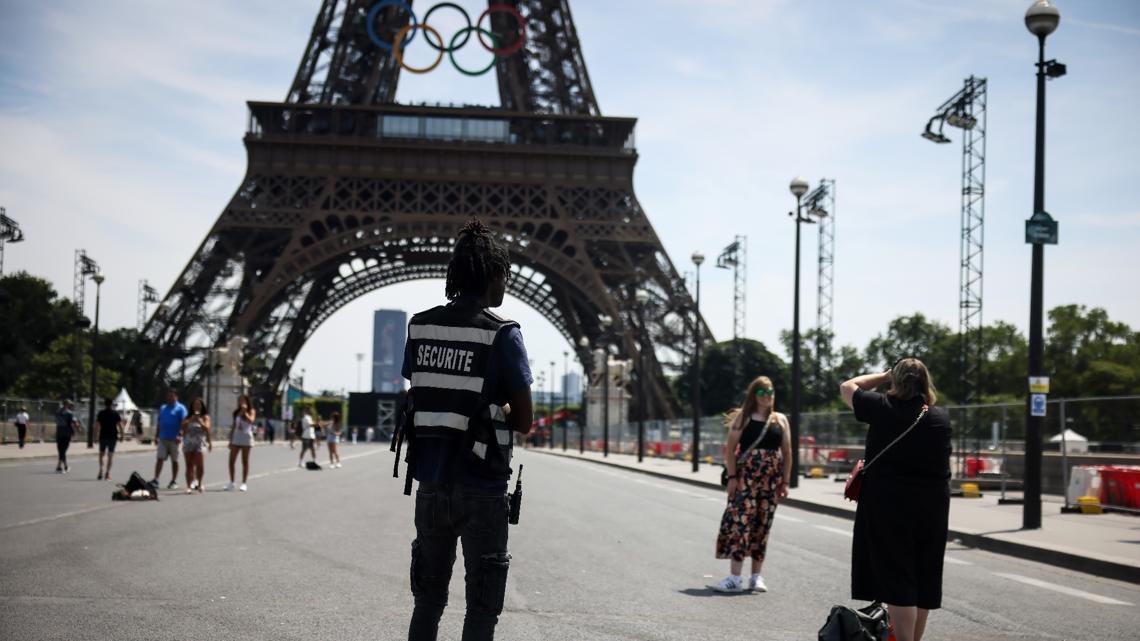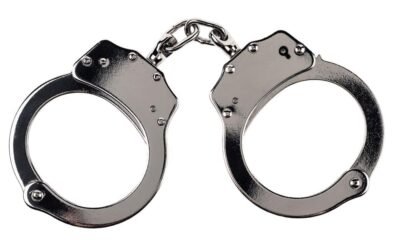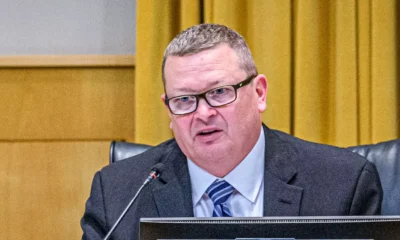Business
AI-Enhanced Jets and Swarming Police: Paris’ Olympic Security Plan Sparks Debate

Paris, in short, has a lot riding on keeping 10,500 athletes and millions of visitors safe. Here’s how it aims to do it.
PARIS, France — A year ago, the head of the Paris Olympics boldly declared that France’s capital would be “the safest place in the world” when the Games open this Friday. Tony Estanguet’s confident forecast looks credible now with vast security measures in place, including police patrols, fighter jets, and metal-fence barriers on both sides of the River Seine, designed for the opening show.
France’s extensive police and military operation confronts July 26-Aug. 11 Games’ unprecedented security challenges. The city has been targeted by extremist attacks, and international tensions persist due to wars in Ukraine and Gaza. Instead of an Olympic park, like Rio in 2016 or London in 2012, Paris hosts events in its lively center and suburbs, complicating security with temporary sports arenas and a river-borne opening ceremony along the Seine.
Concerns extend to cyberattacks, and critics are wary of Paris’ AI-equipped surveillance technology and the broad Olympic security scope.
The security operation, by the numbers
A force of up to 45,000 police and gendarmes, supported by 10,000 soldiers, marks the largest military setup in Paris since World War II. Soldiers can reach any Olympic venue within 30 minutes.
Armed military patrols in vehicles and on foot have become common in France since the 2015 extremist attacks. Although they lack arrest powers, they can tackle attackers until police arrive. Gen. Éric Chasboeuf, deputy commander of the counter-terror military force Sentinelle, noted the initial strangeness for residents but acknowledged it has become normalized.
Security measures include Rafale fighter jets, AWACS surveillance flights, surveillance drones, helicopters for sharpshooters, and drone-disabling equipment. AI-equipped cameras will flag potential risks like abandoned packages or crowd surges. Over 40 countries have sent police reinforcements, totaling at least 1,900 officers.
Trump assassination attempt highlights Olympic risks
Lone-actor attacks are a significant concern, highlighted by an assassination attempt against Donald Trump. The proximity of the gunman to the former U.S. president alarmed officials. Gen. Philippe Pourqué, overseeing the temporary camp in southeast Paris, emphasized the lessons learned from this incident.
France faces frequent lone-actor attacks, with incidents targeting tourists and children in the past year alone. The country has developed a robust network of police units, intelligence services, and specialized investigators to combat terrorism. Background checks for Olympic participants blocked over 3,900 people, identified for reasons including suspected radicalization and significant criminal records.
Interior Minister Gerald Darmanin indicated heightened scrutiny of Russian and Belorussian citizens, though not explicitly linked to the Ukraine conflict. He also mentioned preventive measures for 155 individuals considered potential terror threats.
Critics fear intrusive Olympic security will stay after the Games
Digital rights campaigners are concerned that Olympic surveillance could erode privacy and freedoms. The Saccage 2024 group criticized the Olympic security scope, questioning the trade-off between temporary festivities and long-term security implications for residents.

















